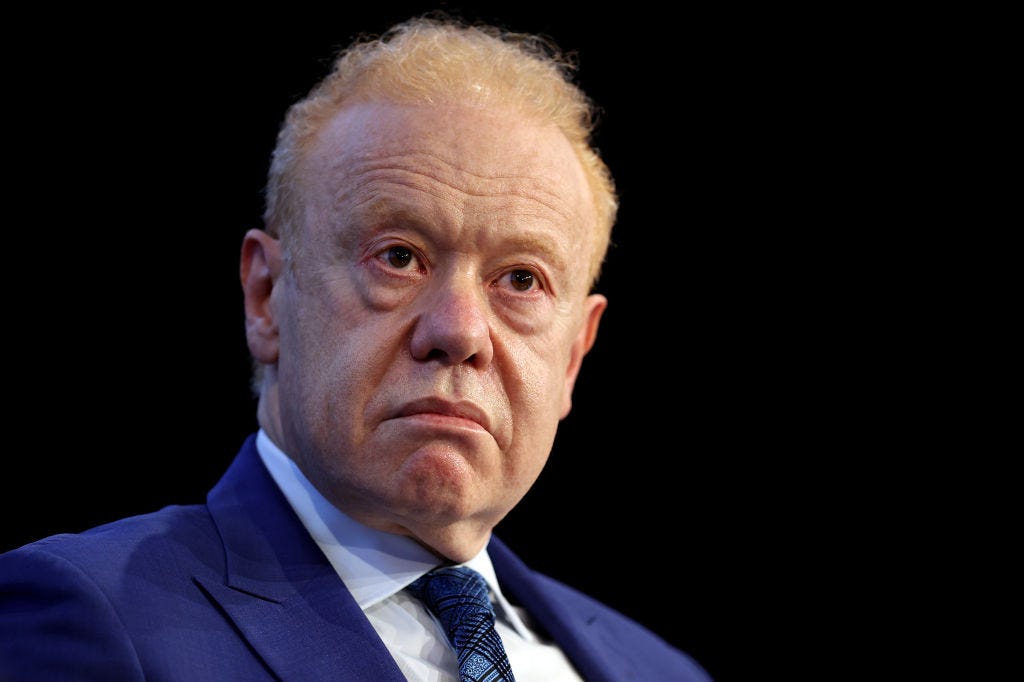
In April 2021, the Australian billionaire Anthony Pratt had a meeting with Donald Trump at his Mar-a-Lago club. According to an ABC News report, “Pratt told Trump he believed Australia should start buying its submarines from the United States, to which an excited Trump—‘leaning’ towards Pratt as if to be discreet—then told Pratt two pieces of information about US submarines: the supposed exact number of nuclear warheads they routinely carry, and exactly how close they supposedly can get to a Russian submarine without being detected.”
The report, citing “sources familiar with the matter,” goes on to mention that Pratt “allegedly shared the information with scores of others, including more than a dozen foreign officials, several of his own employees, and a handful of journalists.” The net, in other words, proved rather large, with emails and conversations taking place on the subject with three former Australian prime ministers, 10 Australian officials, 11 of Pratt’s employees and six journalists.
The revelation has emerged as part of an ongoing investigation by special counsel Jack Smith into Trump’s retention of classified documents on leaving the White House. Some of the documents, hoarded at Mar-a-Lago, covered US military matters, nuclear weapons, and spy satellites.
What is buried in the latest spray and foam of the Trump disclosures to Pratt is whether that encounter had any bearing on the broader strategic thinking in Canberra and its links to the US military industrial complex. The AUKUS security agreement between the United States, the United Kingdom and Australia contemplates the transfer of at least three US nuclear powered Virginia class boats, along with the construction of a specific co-designed nuclear-powered boat for the Royal Australian Navy (RAN). Did Pratt’s enthusiasm for US nuclear submarines percolate through to other officials, think-tankers and courtiers working for Washington’s interests?
Former Australian Prime Ministers Paul Keating and Tony Abbott have told the Australian Financial Review that Pratt never raised the issue of purchasing US nuclear submarines with them. Who, then, were the other prime ministers who received Pratt’s gobbets of wisdom? Surely Scott Morrison must figure, given his role in brokering the AUKUS agreement.
The ABC News report does acknowledge that a number of Australian officials who featured in the Pratt disclosures were “involved in then-ongoing negotiations with the Biden administration over a deal for Australia to purchase a number of nuclear-powered attack submarines from the United States.”
A number of Australian commentators have tried to minimise the significance of the Trump-Pratt encounter, thereby revealing visible smoke plumes. “We’ve had submariners serve on US nuclear submarines for years,” stated former Australian ambassador to the US Joe Hockey. “I find it hard to believe that in a conversation between Anthony Pratt and Donald Trump, anything of great significance was discussed that would have an impact on the national security of either Australia or the United States.”
Former Australian Defence Department official Peter Jennings, who also served as executive director of the US-funded and parochially pro-Washington think-tank, the Australian Strategic Policy Institute, for over a decade, saw little reason to be concerned about the content of the disclosures. Most of the material on US submarines was already in the public domain. His concern, rather, was with Trump’s cavalier approach to national security information. “It’s just the 1000th example of why Trump is unfit to be president,” he tut-tutted. Jennings, along with the other members of the paid-up Washington consensus in combating Beijing, is no doubt losing sleep about Trump redux. Were Trump to return to the White House, all bets about Australia getting its nuclear-powered submarines are off.
The speed with which AUKUS was entered into by the Scott Morrison government in September 2021, an agreement which also brought no demurral or any murmurs of dissent from the then Labour opposition of Anthony Albanese, had a rank smell to it. For one thing, it has seen Australia further trapped in an insidious game of military competition being waged against China at the behest of US interests, militarising the country and mortgaging the budget to the tune of $368 billion over the course of two decades.
AUKUS also brought with it the abrupt termination of Canberra’s contract with the French Naval Group to construct twelve diesel-electric attack submarines for the RAN. This proved to be a disastrous affair for Australian diplomacy, savaging French-Australian relations and also advertising, to the region, the abject repudiation of Australian sovereignty.
While it should be stressed that Pratt faces no charges of illegality or impropriety, nor features in the 40 charges Smith is levelling against Trump, the Mar-a-Lago meeting with a former US president may prove critical in identifying a nexus with Canberra’s irrational interest in US-nuclear powered technology and the point at which that fascination ended the last vestiges of Australian independence.



